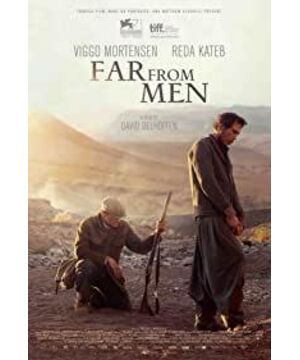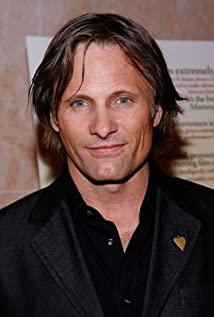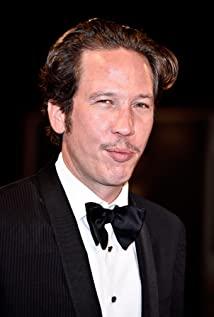Copyright statement: the content source network, this article is only for sharing, the copyright belongs to the original author, if there is any infringement, please inform and contact to delete
- Is it only the world we live in now that it is absurd, or is it always absurd? What qualities should a good literary or film and television work have? It should fully reveal the absurdity of the world and the complexity of human nature, and it should be morally and ideologically tolerant.
- The world is so ridiculous and human nature is so changeable. In the face of all this, we choose "no choice". This is an attitude of observing the world, and in the end it is also a rational and tolerant way.
- In this movie, we can see Camus's profound expression of the absurdity of life, and there is no lack of Camus's personal shadow. In terms of the thought and content conveyed in the film, it has many similarities with Camus's life, and the film also makes a full and perfect visual interpretation of Camus's thoughts.
(The following full text was reproduced in WeChat original Fangzhou Looking for Outsiders on March 1st )
"Loin des Hommes" (Loin des Hommes) is a 2014 film directed by David Ohoven, based on a short story by Camus, "The Guest" (The Complete Works of Camus · Novel Volume" translated in Shanghai Here, this article is entitled "The Host", translated by Ding Shizhong.) The background is the era when the ethnic conflict in Algeria escalated into war in 1954. The protagonist Dalu is played by Viggo Mortensen, an Algerian rural teacher who originally lived a simple and peaceful life in isolation. One day, the police brought a murderer (an Arab) to visit and asked him to take the prisoner to the border. The city is handed over to the authorities.
I've read this short story before, and the "Camus" temperament in it is that there is not much happening from beginning to end, and the protagonist clearly refuses the order. "If you want me to hand it over, it can't be done." But the police handed him over and left. He had to take the prisoner for one night, feed him and give him a place to sleep, and took him to the city the next day. superior. Here, he pointed to the road ahead and told the prisoner that the police station at the border is there. You can surrender, but the road next to it leads to the desert. You will meet nomadic tribes. According to their rules, they must receive you. .
The story of the movie is more complicated and fuller. The Arab murderers’ motives for the murder and why they died willingly without fleeing gave some explanations. After the village teachers took the prisoners on the road, they met the people of the National Liberation Front and were taken hostage. However, we met old comrades in arms. At this time, we discovered that the rural teacher was actually a soldier. They served together in the Italian battlefield of World War II. He chose to become a teacher, while other people with more "Arab blood" are now "rebels." Or "terrorist".
The old comrade-in-arms told him that you must choose one side, but Dalu refused to make such a choice. The comrade-in-arms said to him, I treat you like a brother, but if I must kill you, I will do it.
As a result, this small group encountered the French army and was slaughtered, even after they had surrendered. As a hostage, Dalu escaped a disaster with the identity of a veteran and the appearance of a European. He looked straight at the French soldier: You killed a person who had put down his weapon. This is a crime. The French soldier replied easily: This is an order, I am just executing the order. Dalu said, but this is not right.
The Arab prisoner happened to be regarded as Daru's "negative": He prayed for a man who Daru killed by mistake, and told Daru that I am not a coward, and I am not weak. Yes, it is his own choice to die. Dalu yelled at him when he saw so many people being killed, but you are still alive, aren't you? He just said, do you yell like that to your students?
On the night they were taken hostage, the two people whose fate had to meet each other opened their hearts to each other. The Arab said that he had never been with a woman, and he asked Dalu, what is it like to sleep with a woman? What is it like to get married? Dalu recalled his wedding, it was a beautiful wedding, a beautiful day. The next day Dalu went to find a woman for him. At the same time, he himself accepted the kindness of the women here.
Finally they reached the edge of the city. Dalu said to the Arabs, don't surrender. At the end of the novel, Dalu was sad to see that the prisoner had taken the path of surrender. However, at the end of the movie, Dalu saw the prisoner hesitate for a while, and walked towards the unknown road of freedom. He smiled and went back to give the children the last lesson, after which he was leaving there too.
Viggo Mortensen also mentioned in the interview about the film that the character in the film contains too many elements of Camus. Camus is also a "black foot" born in Algeria, has French citizenship but is extremely poor. In addition, all the characters in the movie are very reticent. The atmosphere of silence is the same as poverty. It is almost a gift from his mother and has become an important part of his work. Even if he was told that this person had killed someone, he refused to proceed with the trial and treated the person as an adult. Of course, there is Camus who opposes the death penalty, and the "guillotine" is also his important legacy and recurring proposition. But more importantly, refusing to choose to stand on either side, refusing war and killing, this is Camus's attitude all along. As a result, he parted ways with Sartre and others, and also maintained a painful silence for several years during the Algerian War until his sudden death in 1960.
The original work of this novel was published in 1957. I paid attention to this movie, but it was because in the process of collecting information for "Looking for the Outsider", I noticed that Viggo Mortensen re-read Camus at Columbia University in 2016. The trip to the United States in 1946. The speech "The Crisis of Man", and then I found a conversation about the film.
Camus' first and only trip to the United States was at the end of March 1946 to prepare for the debut of "The Outsider" in the United States. His publisher, Knopf, created momentum for his new book, and published four full-page adverts in "Publisher Weekly", portraying Camus as an "existentialist spokesperson", although Camus himself has always clarified that he is not existentialist. But the Americans have deeply entrenched him with existentialism. In the speech itself, the organizers wanted him to tell the Americans about the current state of French literature and drama, but Camus self-consciously talked about what he has always cared about most, that is, even though the war is over, he Discovering that human society has entered an era accustomed to violence and killing, he introduced the growth of his generation of Europeans to Americans and hoped that everyone will work together to get rid of this fear of living in the killing. If there is no peace, no one will have freedom. The chapter "The Apostle in New York" of "Looking for an Outsider" passionately reproduces this historical scene. Therefore, in this rereading in 2016, author Kaplan introduced this history to the audience as a special guest.
"Looking for
The village teacher in "Far from the People" is European and his parents are Hispanic. In the eyes of the locals, he is French; but in the eyes of the French, he is an Arab. The tearing of this identity reached its culmination when he saw his brother-in-arms slaughtered. If you do not deeply understand this, you will not be able to understand Camus’s plight, nor will he understand what he said, "If we must choose between mother and justice, I choose mother."
Kaplan, the author of "Looking for the Outsider", mentioned that when she visited North Africa, she realized that Algerians, French, and Americans all read the novel "The Outsider" differently. For example, the identity of the Arab who was killed was ignored. As a Chinese, I didn't realize that this would become a problem before. Said made a very sharp criticism of this very early.
But if you are fully aware that "The Outsider" is telling the story of a man who was "judged for the wrong reason and sentenced to death for unwillingness to lie under any circumstances", then this confusing protagonist can be connected with Camus. The consistent image of humanitarianism is unified, and this novel is also a personal struggle. Of course, at the time of this speech in 1946, France had already come out of the occupation, and Camus had already become famous because of "The Outsider", working in Galima and serving as the editor-in-chief of the "Combat". Inspired by the occupied Paris, "The Plague", which has been written since 1940, has occupied his mind more and will eventually establish his position as the spokesperson of the resistance movement and the standard bearer of humanitarianism.
I haven’t found a translation for Camus’s speech in the United States for the time being in Chinese books, but an article in his 1946 "Zhan" is basically a continuation of this speech, that is, "Don’t be a victim or be a victim." The Executioner. There are many extraordinary insights that make this article look very personal today.
Not being a victim, or being an executioner, is the best commentary on the movie "Far from Humans". "Maybe there is a cause worthy of sacrifice, but no cause is worth killing."
Speaking of Camus's attention in China, it was actually because of two epidemics. During the SARS outbreak in 2003 and now, many people reread or read "The Plague" for the first time. I don’t know, what have readers seen from "The Plague"? In my opinion, the point that "The Plague" is consistent with "The Outsider" and "Far From Man" is that Camus tells us that people have the right to choose and have free will in any situation. Incidentally, it was not the plague that inspired Camus to write "The Plague," but the power of friendship in isolation and isolation under war conditions. In his letter to Pascal Pia, he mentioned that the title of the novel he was considering was called "the quarantined." To quote a friend, "The plague there is a metaphor, and so is it here. There are different ways of resistance there, and there are also here."
Camus' pacifism is considered naive by many people. Viggo mentioned that he was despised by the stall owner when he wanted to buy a Camus book on a French book stall. Sontag confessed that Camus’ morality has "intellectual weakness" ("how difficult a virtue to understand"). However, this is the value of Camus: he jumped from the abyss of nihilism to humanitarianism. Susan Sontag said it well: "Kafka evokes pity and fear, Joyce evokes admiration, Proust and Gide evoke respect, but apart from Camus, I don’t think There are other modern writers who can evoke love."
View more about Far from Men reviews











